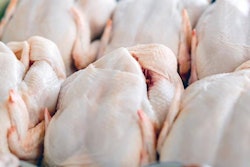
With Donald Trump as the presumed Republican nominee for the U.S. presidency and Hillary Clinton as the presumed Democratic nominee, international trade outlooks for the poultry industry and animal agriculture as a whole will be “initially dim,” one political analyst said.
Tyson Redpath, senior vice president of the Russell Group, addressed issues concerning the ramifications of the upcoming presidential election on the agriculture industry during the Animal Agriculture Alliance Stakeholders Summit, held April 5 in Arlington, Virginia.
Future prospects
When asked about trade prospects by Tom Super, vice president of communications for the National Chicken Council, Redpath said the outlook will be initially dim, but that conditions should improve.
“I said initially,” said Redpath, who spent time as an agriculture advisor for former House Speaker John Boehner. “Look, it is not unprecedented for multilateral trade agreements to be renegotiated. It’s not unprecedented for multilateral trade negotiations to take three or four years to be submitted to Congress. That just happened under this administration with the Korean, Colombian and Panamanian trade agreements. In particular with Korea, I know personally there were elements of that that were changed.”
Redpath said while both candidates seem opposed to certain free trade agreements, he is still optimistic.
“I certainly think both candidates have voiced very clearly their objections,” he said. “That doesn’t mean objections can’t be overcome or resolved.”
Redpath added that whenever there is a change in the presidency, other key players in the negotiations enter the picture, including the U.S. agriculture secretary, commerce secretary and U.S. Trade Representative. The eventual president’s choices for those positions will also play a factor on how future trade negotiations will play out.


















